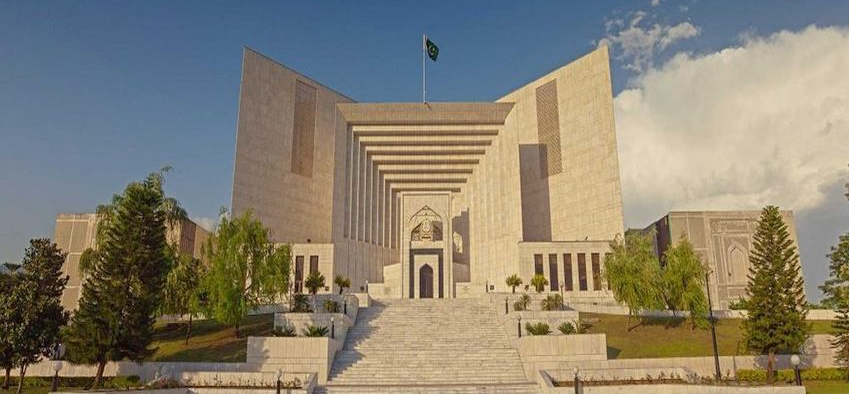Any Land in Possession of Cultivator beyond March 3, 1960 would need proper Legal Documentation, or it would revert to the Government --- Supreme Court of Pakistan
Islamabad 21-09-2024: In a significant judgment concerning land rights in Punjab, the Supreme Court of Pakistan has ruled in favor of Adna Maliks (cultivators), affirming their proprietary rights over the Shamlat Deh (common land) under the West Pakistan Land Reforms Regulation, 1959 (MLR 64) and the 1960 Notification. The Court rejected the claims of Ala Maliks (original landowners) to superior proprietary rights, which were based on historical customs such as the Wajib-ul-Arz and Hasab Rasad Khewat.
The Court, in a majority decision, set aside the judgment of the Lahore High Court, which had previously upheld the proprietary claims of Ala Maliks based on customary landholding practices. The Adna Maliks, represented in three Civil Appeals, had sought enforcement of MLR 64, which they argued had granted them ownership of the land they possessed as of March 3, 1960.
The Supreme Court of Pakistan emphasized the supremacy of statutory law over traditional customs. MLR 64, which was enacted as part of land reforms in West Pakistan, abolished the superior rights of Ala Maliks without compensation and granted Adna Maliks full ownership of the land they cultivated. The Court ruled that customary practices like the Wajib-ul-Arz and Hasab Rasad Khewat could no longer dictate land ownership in the face of the statutory provisions of MLR 64 (Para 11, 13).
One of the key principles affirmed by the Court was that possession as of March 3, 1960, was the determining factor for ownership. The Khasra Girdawari records from 1958-1962, which document the possession of Adna Maliks, were deemed valid for establishing their proprietary rights. The Court reiterated that any land in possession of Adna Maliks beyond this date would need proper legal documentation, or it would revert to the government (Para 16).
The Court dismissed Ala Maliks’ claims to superior ownership based on historical practices, stating that MLR 64 had effectively abolished all Ala Malkiat (superior ownership). While Ala Maliks had argued that their superior rights were embedded in custom, the Court clarified that statutory law, particularly Paragraph 22 of MLR 64, took precedence and abolished these rights without compensation (Para 3, 4).
This case marks the conclusion of decades of litigation between Ala Maliks and Adna Maliks over land rights in the Punjab regions of Bhakkar, Muzaffargarh, and Layyah. The Court recounted the extensive history of litigation, including rulings from 1962 onwards, which had consistently supported Adna Maliks’ rights based on possession. The judgment also referenced several past landmark cases, such as Ghulam Haider Vs. Haider (1951) and Khanan Vs. Fateh Sher (1993), which supported the concept of dual ownership but reinforced the rights of Adna Maliks under MLR 64 (Para 9, 13).
The judgment also addressed the issue of excess land in possession of Adna Maliks beyond the date of MLR 64’s enforcement. The Court held that any such excess land must be returned to the government unless there was lawful documentation proving the transfer or acquisition of the land. This ensures that land unlawfully acquired after the cutoff date of March 3, 1960, would revert to the state (Para 16, 17).
By a majority decision of 2-1, the Court ruled to allow the appeals of Adna Maliks and set aside the Lahore High Court’s judgment. The dissenting opinion was delivered by Ms. Justice Ayesha A. Malik, who disagreed with the majority but whose reasoning was not detailed in the public summary of the ruling.
This landmark judgment reaffirms the legal precedent that statutory law supersedes customary practices in land disputes and strengthens the rights of cultivators who possess land under MLR 64. The ruling is expected to have significant implications for land ownership disputes in rural Punjab, where similar cases of competing claims between Ala Maliks and Adna Maliks continue to surface.
Powered by Froala Editor








